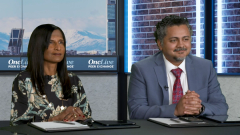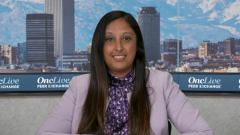
Treatment of Multiple Myeloma at Early Relapse
A panel of expert hematologic-oncologists offer insights on how they treat patients with multiple myeloma at early relapse.
Episodes in this series

This is a video synopsis/summary of a Peer Exchange featuring Krina K. Patel, MD, MSc; Amrita Krishnan, MD; Caitlin Costello, MD; Saad Z. Usmani, MD, MBA, FACP; and Rafat Abonour, MD.
The discussion focuses on treatment selection in early relapse multiple myeloma after initial therapy. Key factors include patient comorbidities, pace of relapse, high-risk features, prior toxicity, and duration of benefit from prior lines. Refractoriness to lenalidomide maintenance is increasingly common and complicates choices.
For standard-risk relapsed patients, triplet regimens like carfilzomib-cyclophosphamide-dexamethasone (KCd) or carfilzomib-daratumumab-dexamethasone (DKd) are recommended based on efficacy data from the phase 3 CANDOR and IKEMA trials vs doublets. However, in frail, older patients, combinations like daratumumab-pomalidomide-dexamethasone (DPd) or isatuximab-pomalidomide-dexamethasone (IPd) may be better tolerated while still improving outcomes over pomalidomide-dexamethasone.
Video synopsis is AI-generated and reviewed by OncLive® editorial staff.










































